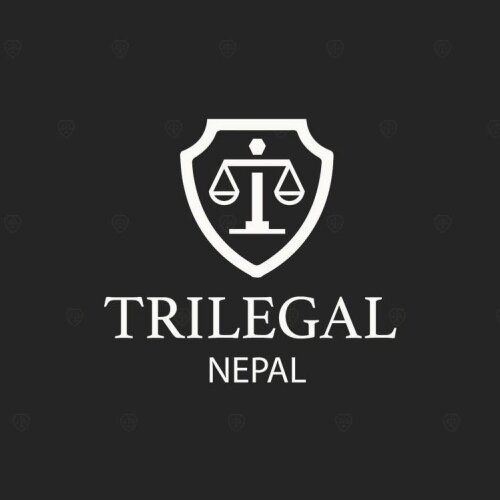Best Tax Increment Financing Lawyers in Nepal
Share your needs with us, get contacted by law firms.
Free. Takes 2 min.
Or refine your search by selecting a city:
List of the best lawyers in Nepal
About Tax Increment Financing Law in Nepal
Tax Increment Financing (TIF) is a public financing method that is used as a subsidy for redevelopment, infrastructure, and other community-improvement projects. In Nepal, TIF is relatively new but recognized as a crucial tool for promoting urban development and revitalizing areas that are stagnant or declining. The fundamental concept of TIF in Nepal involves using future increases in property taxes that stem from redevelopment to finance the current improvements without raising the current tax rates.
Why You May Need a Lawyer
There are several situations in which legal assistance may be beneficial when dealing with Tax Increment Financing in Nepal:
- Understanding and navigating the complexities of the TIF legal framework.
- Negotiating TIF agreements with local authorities or developers.
- Ensuring compliance with all regulatory requirements and local laws.
- Representing your interests in disputes or litigations related to TIF agreements.
- Advising on financial impacts and tax implications associated with TIF projects.
Local Laws Overview
Nepal's TIF-related laws provide a framework for the development and implementation of projects under the TIF model. Key aspects include:
- Identification of TIF districts which are areas designated for potential redevelopment.
- Development of a TIF plan outlining the proposed improvements and expected economic impacts.
- Provisions that govern the allocation and use of tax increments generated from TIF districts.
- Requirements for transparency and public participation in the TIF decision-making process.
- Regulations for monitoring and reporting on the progress and financial status of TIF projects.
Frequently Asked Questions
What is Tax Increment Financing?
Tax Increment Financing (TIF) is a method used to fund public or private projects by using the anticipated future increase in property taxes that result from the development.
How does TIF benefit communities in Nepal?
TIF can help revitalize and improve infrastructure and services in areas that need development, thereby fostering economic growth and community enhancement.
What is a TIF district?
A TIF district is a designated area within which the TIF redevelopment scheme is applied, chosen for its potential to benefit significantly from improvement projects.
Who oversees TIF projects in Nepal?
TIF projects are typically overseen by local municipal authorities in conjunction with urban development ministries and departments.
What are the legal requirements for setting up a TIF district?
The designation of a TIF district requires a detailed proposal and feasibility assessment, followed by approvals from relevant governmental bodies.
Can TIF be used for private improvements?
Primarily, TIF is intended for public improvements; however, it may sometimes fund private development that results in public benefit, in alignment with local regulations.
Are there any risks associated with TIF?
Yes, there are risks such as overestimation of tax increments, mismanaged projects, and potential for increased public debt if not carefully structured.
What is the role of public consultation in TIF projects?
Public consultation is essential as it ensures transparency, allows stakeholder input, and helps build community support for proposed projects.
Can TIF be used to address environmental concerns?
Yes, TIF can fund projects that incorporate sustainable practices or remediate environmentally impacted sites, aligning with national sustainability goals.
How do I find out if my area is eligible for TIF?
Contact local municipal offices or urban development authorities in your area to inquire about TIF eligibility and current projects.
Additional Resources
Here are some resources and organizations that can provide further assistance on TIF in Nepal:
- Ministry of Urban Development
- The Department of Urban Development and Building Construction
- Nepal Investment Board
- Local Municipal Offices
- Legal Firms specializing in property and urban development
Next Steps
If you require legal assistance regarding Tax Increment Financing in Nepal, consider the following steps:
- Identify and consult with a lawyer specializing in tax or urban development law.
- Gather all relevant documentation related to the TIF project or issue.
- Prepare a list of questions or concerns you have about your specific situation.
- Engage with public authorities or private organizations involved in the TIF project, facilitated by legal counsel if necessary.
- Stay informed about local TIF-related developments and changes in laws or regulations that might affect your interests.
Lawzana helps you find the best lawyers and law firms in Nepal through a curated and pre-screened list of qualified legal professionals. Our platform offers rankings and detailed profiles of attorneys and law firms, allowing you to compare based on practice areas, including Tax Increment Financing, experience, and client feedback.
Each profile includes a description of the firm's areas of practice, client reviews, team members and partners, year of establishment, spoken languages, office locations, contact information, social media presence, and any published articles or resources. Most firms on our platform speak English and are experienced in both local and international legal matters.
Get a quote from top-rated law firms in Nepal — quickly, securely, and without unnecessary hassle.
Disclaimer:
The information provided on this page is for general informational purposes only and does not constitute legal advice. While we strive to ensure the accuracy and relevance of the content, legal information may change over time, and interpretations of the law can vary. You should always consult with a qualified legal professional for advice specific to your situation.
We disclaim all liability for actions taken or not taken based on the content of this page. If you believe any information is incorrect or outdated, please contact us, and we will review and update it where appropriate.
Browse tax increment financing law firms by city in Nepal
Refine your search by selecting a city.

















